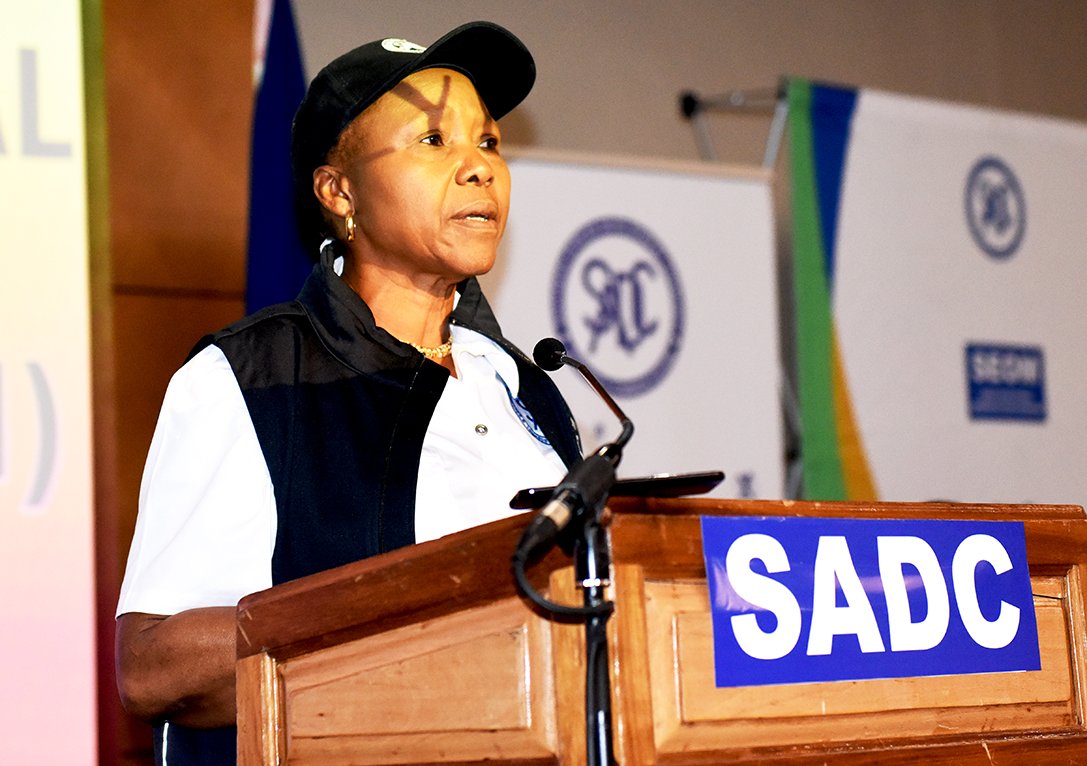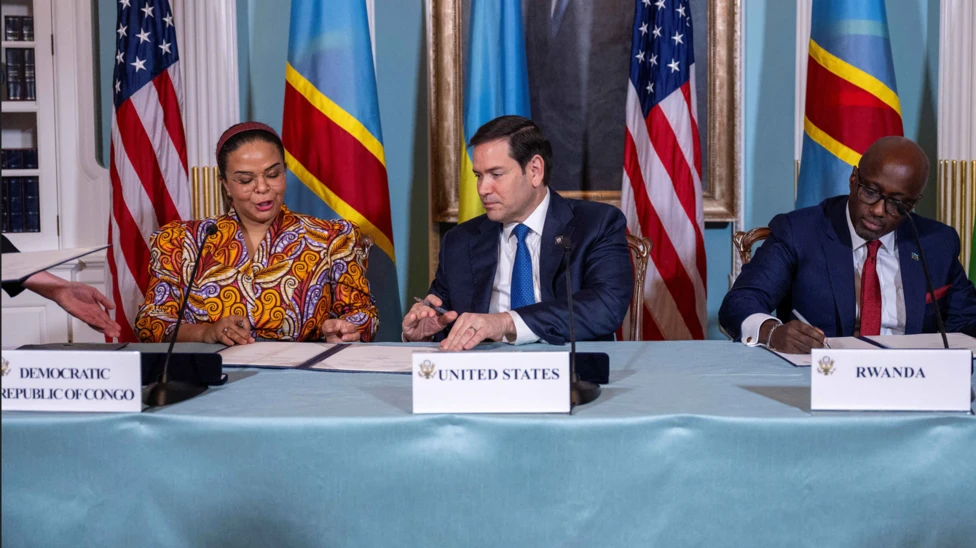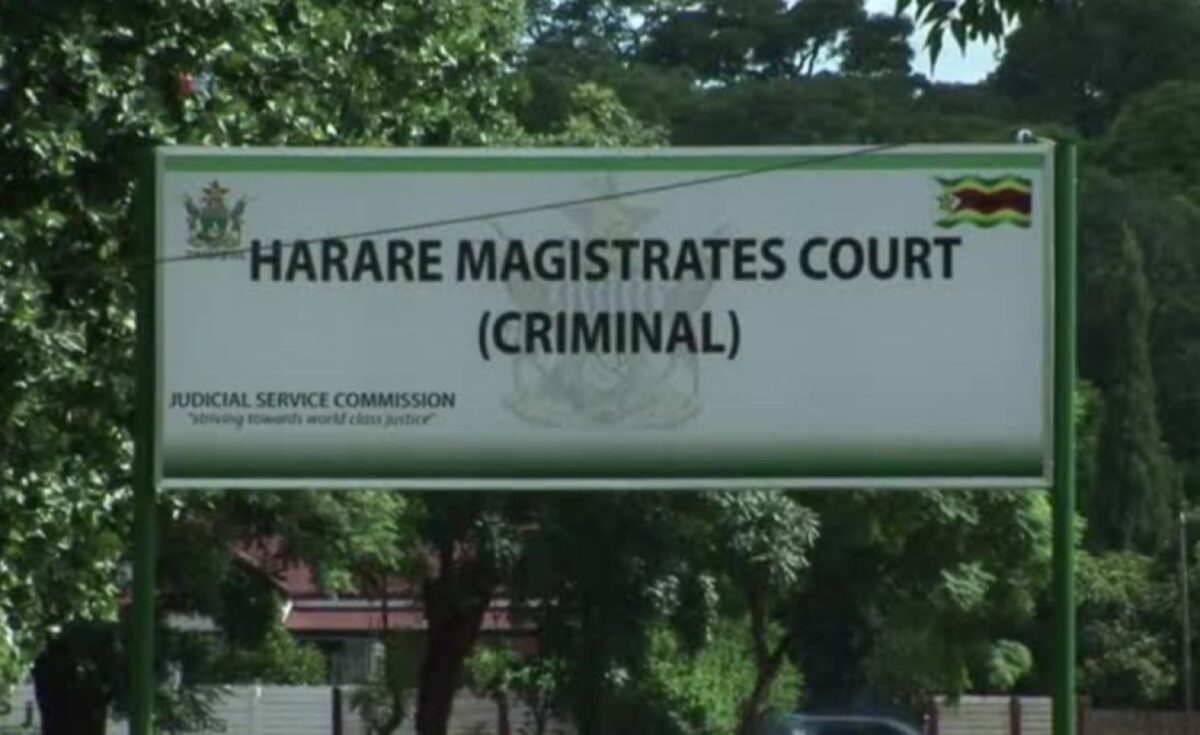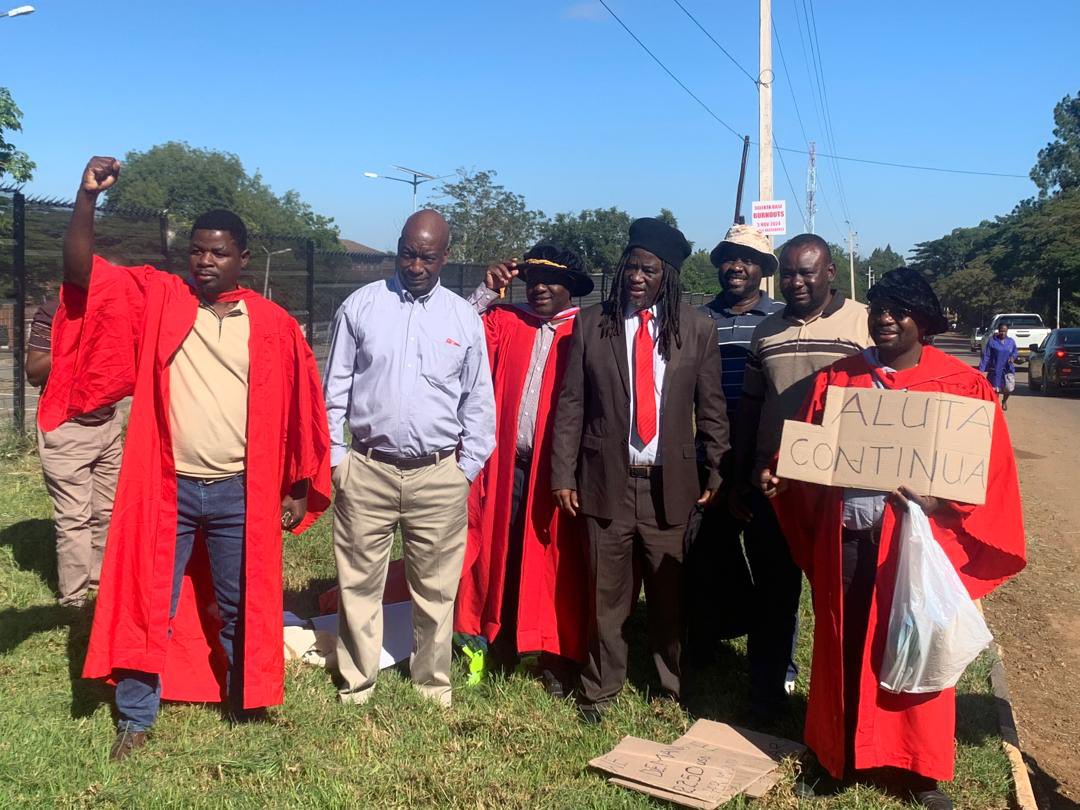WINDHOEK, Namibia – Namibia’s opposition parties are crying foul after incumbent president Hage Geingob was re-elected for a second term with a reduced majority on Saturday.
Geingob’s rivals are claiming vote manipulation and accused the SADC observer mission headed by Zimbabwe’s defence minister Oppah Muchinguri-Kashiri of being unfit for the task.
Mike Kavekotora, the leader of the Rally for Democracy and Progress, said they were coordinating with the other parties about how to respond to alleged electoral malpractices.
The election was marred by allegations of faulty voting machines.
Geingob received 56 percent of the vote while closest challenger Panduleni Itula had 29 percent. Itula made history as the first independent candidate for the presidency, though he retained his ruling party membership.
Itula did not attend the announcement of the final results, also aggrieved by what he saw as vote manipulation.
The ruling SWAPO party for the first time lost its two thirds majority in Parliament. SWAPO polled 536,861 of the votes (65,5 percent), earning the party 63 of the 96 seats in the National Assembly, down from the 77 won in 2014.
Kavekotora, whose party won one seat in last week’s election, told reporters Muchinguri-Kashiri and her delegation were unfit to observe Namibia’s elections because of persistent vote rigging allegations against her Zanu PF party.
“The SADC observer mission was loaded with a lot of people from Zimbabwe. What do we expect from somebody who was coming from a rigged election in his or her own country? How do you expect that person to come and give you a proper observation in another country? That’s just impossible…,” Kavekotora said.
He said Muchinguri and her delegation could not do anything other than “rigging and basically supporting your friends in the country that you are now observing elections in.”
“We consider this matter to be very serious. We’re going to engage the other political parties and we’ll keep our options open and see what’s the right course of action. Namibia cannot be manipulated. We have to come to a point where we say ‘enough’,” he added.
Stergomena Tax, the SADC executive secretary, tried to address the issue in a tweeted response on Saturday night.
She said: “It should be noted that the current SADC Organ chair is Zimbabwe, thus, the SADC Electoral Observation Mission to Namibia was led by Zimbabwe, supported by Organ Troika Members – Botswana and Zambia. The mission comprised of observers from 11 members states.”
It is not the first time Muchinguri-Kashiri has faced tough questions over Zimbabwe’s lead role.
Shortly after arriving in Namibia before the November 27 vote, Muchinguri-Kashiri had a torrid time trying to explain her selection to lead the regional bloc’s election observation mission after being confronted by both the Namibian media and opposition politicians.
Muchinguri-Kashiri was giving the Namibian media and election stakeholders a briefing on the SEOM role on November 25 as well as giving their preliminary findings on the pre-election environment in Namibia.
One journalist asked Muchinguri-Kashiri how the Namibian electorate could trust the SEOM headed by members of the Zimbabwean government that saw six people die in elections last year.
“Why should we trust you to run a credible election here in Namibia under SADC when your election claimed six lives in Zimbabwe and why is it that the whole SEOM is made up of revolutionary parties representatives and no opposition politicians?” the journalist asked Michinguri-Kashiri.
The minister, flanked by her deputy head of mission and Zanu PF politburo member Patrick Chinamasa, responded: “It’s important to note that we are not here as individual countries but collectively as SADC. SEOM is well constituted with many different people including government officials, eminent persons from SADC as well as those from the opposition. If there be need to understand more on the composition of SEOM, you can also refer to our strict terms of reference.”
Another journalist probed her: “Your panel is dominated by members of revolutionary parties in the region who also are very close to the ruling party here. So how do make sure that the electorate here trust you?”
Muchinguri-Kashiri insisted that SEOM was in Namibia to merely observe the election and were not involved in the internal processes of the country.
That did not convince Kavekotora, also at the meeting, who questioned whether she had an understanding of the Namibian laws governing elections.
“You speak of observing whether there are any corrupt parties on the election process in Namibia. I’m not convinced you have an in-depth understanding of the laws of Namibia,” Kavekotora said.
A total of 15 parties battled for representation in parliament.
Some 1.3 million voters were registered to vote, with a turnout of 60 percent (820,227).
The Popular Democratic Movement (PDM), which gained 136,576 votes or 16,6 percent of the total number of votes cast, became the official opposition.
The quota to qualify for a seat in the National Assembly was set at 8,544 votes.
Eleven out of the fifteen political parties that contested the National Assembly election won seats in parliament.
The PDM, which won five seats in 2014, this time will have 16 MPs, followed by new entrants the Landless People’s Movement (LPM) with four seats.
Other political parties that gained seats in the National Assembly for the first time include the Christian Democratic Voice Party and the Namibia Economic Freedom Fighters (NEFF), which won one and two seats respectively.
The United Democratic Front (UDF), National Unity Democratic Organisation (Nudo), All People’s Party and Republican Party won two seats each, while the Rally for Democracy and Progress (RDP) and SWANU scraped back into the National Assembly with one seat each.
The four parties that did not qualify for any seats in parliament are the former official opposition the Congress of Democrats, the Workers’ Revolutionary Party, the National Patriotic Front and the National Democratic Party.
(Additional reporting by The Namibian)
















